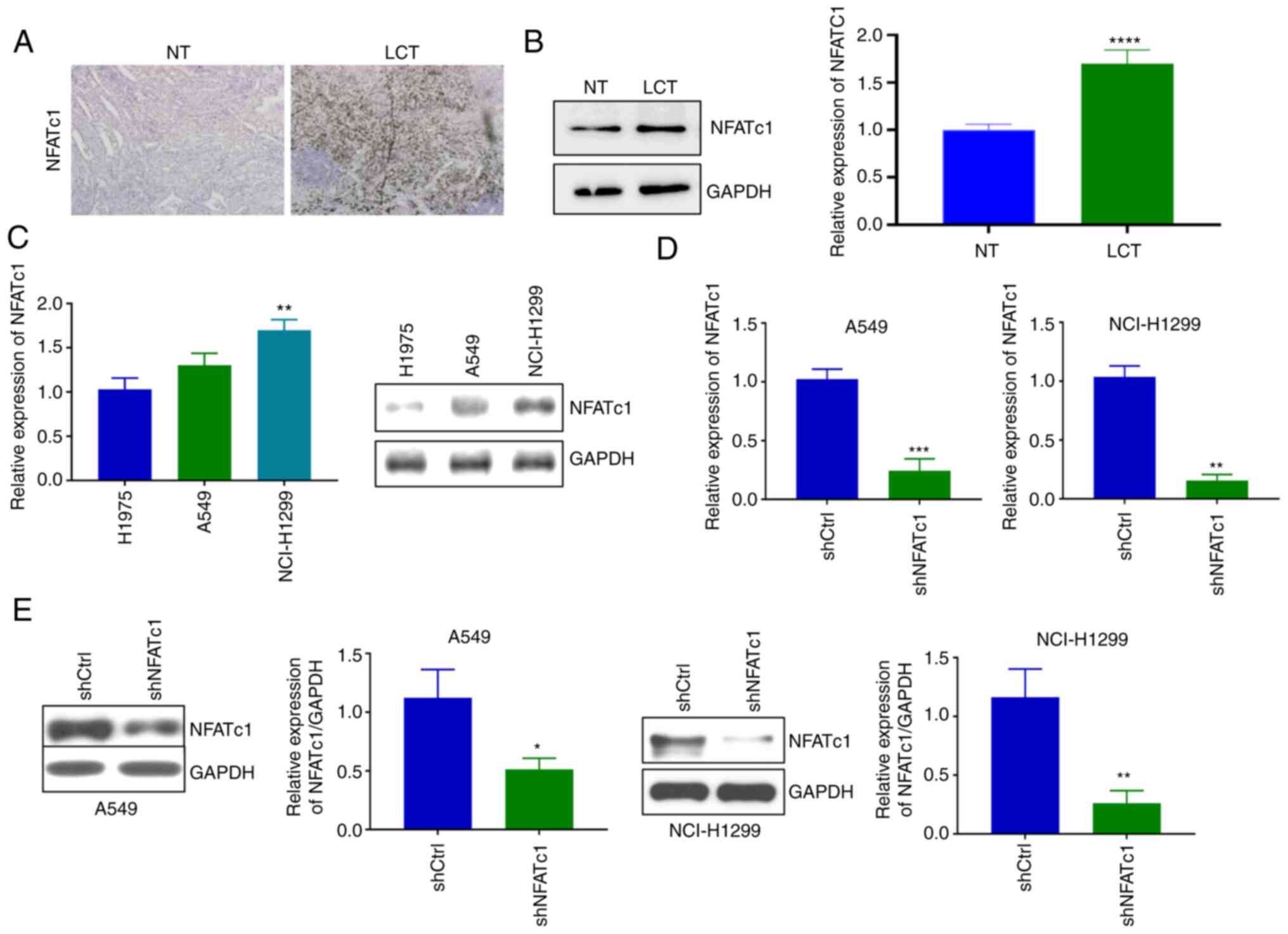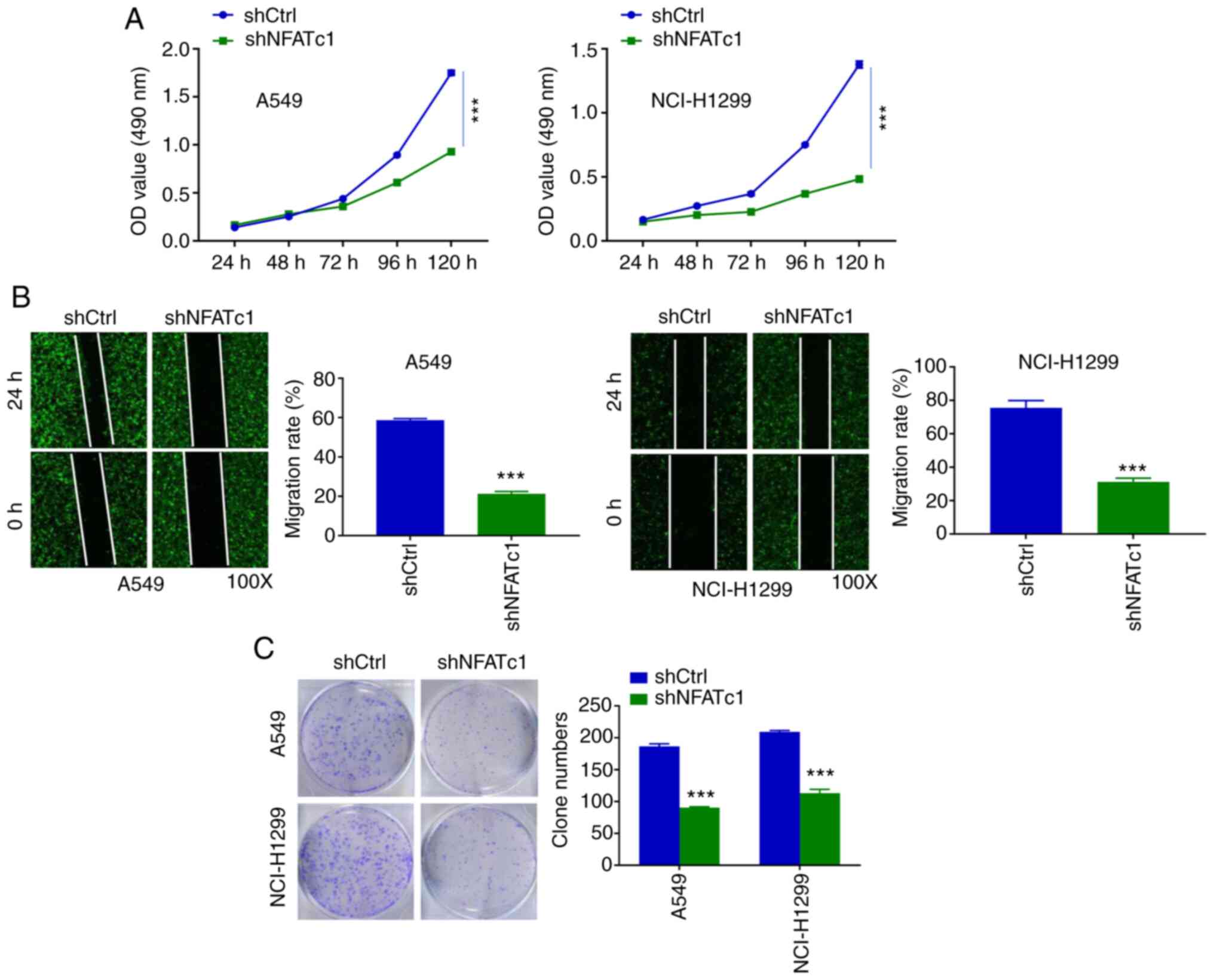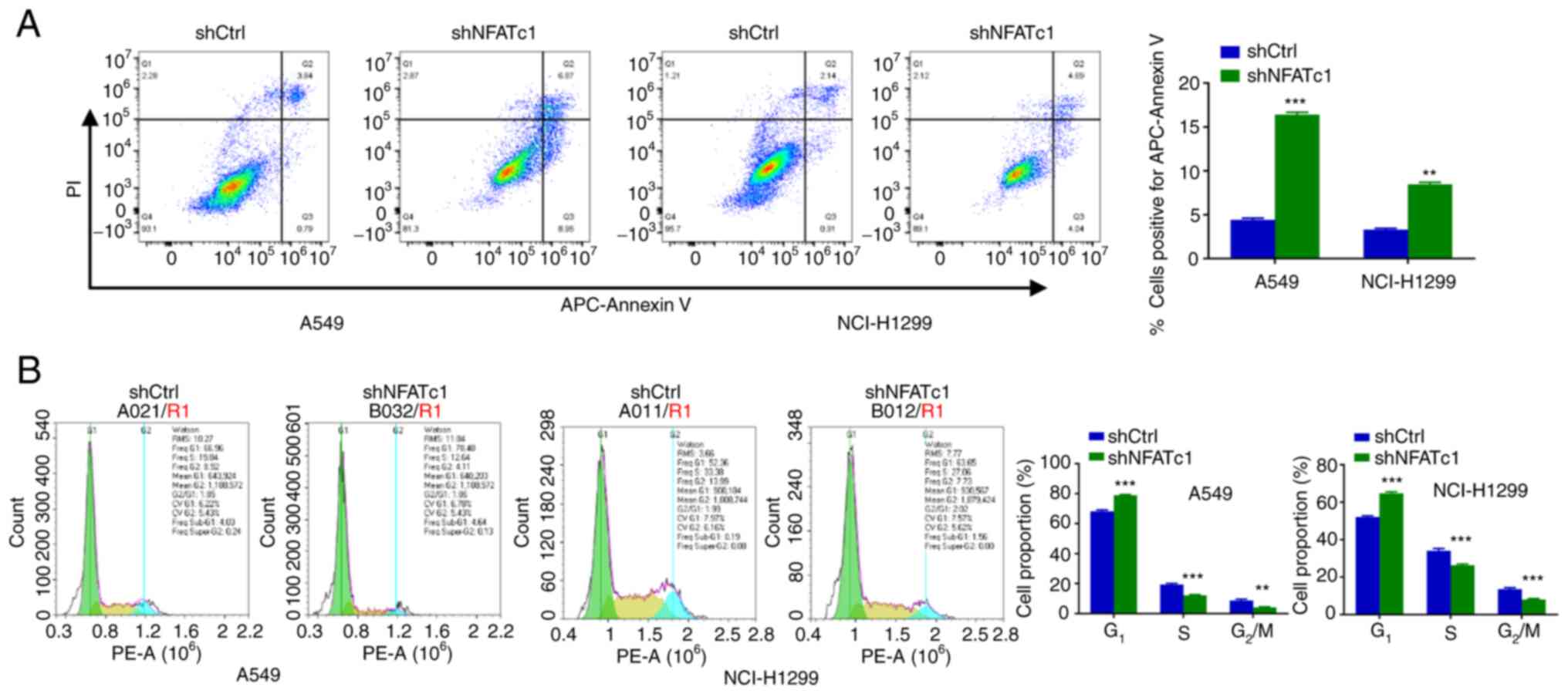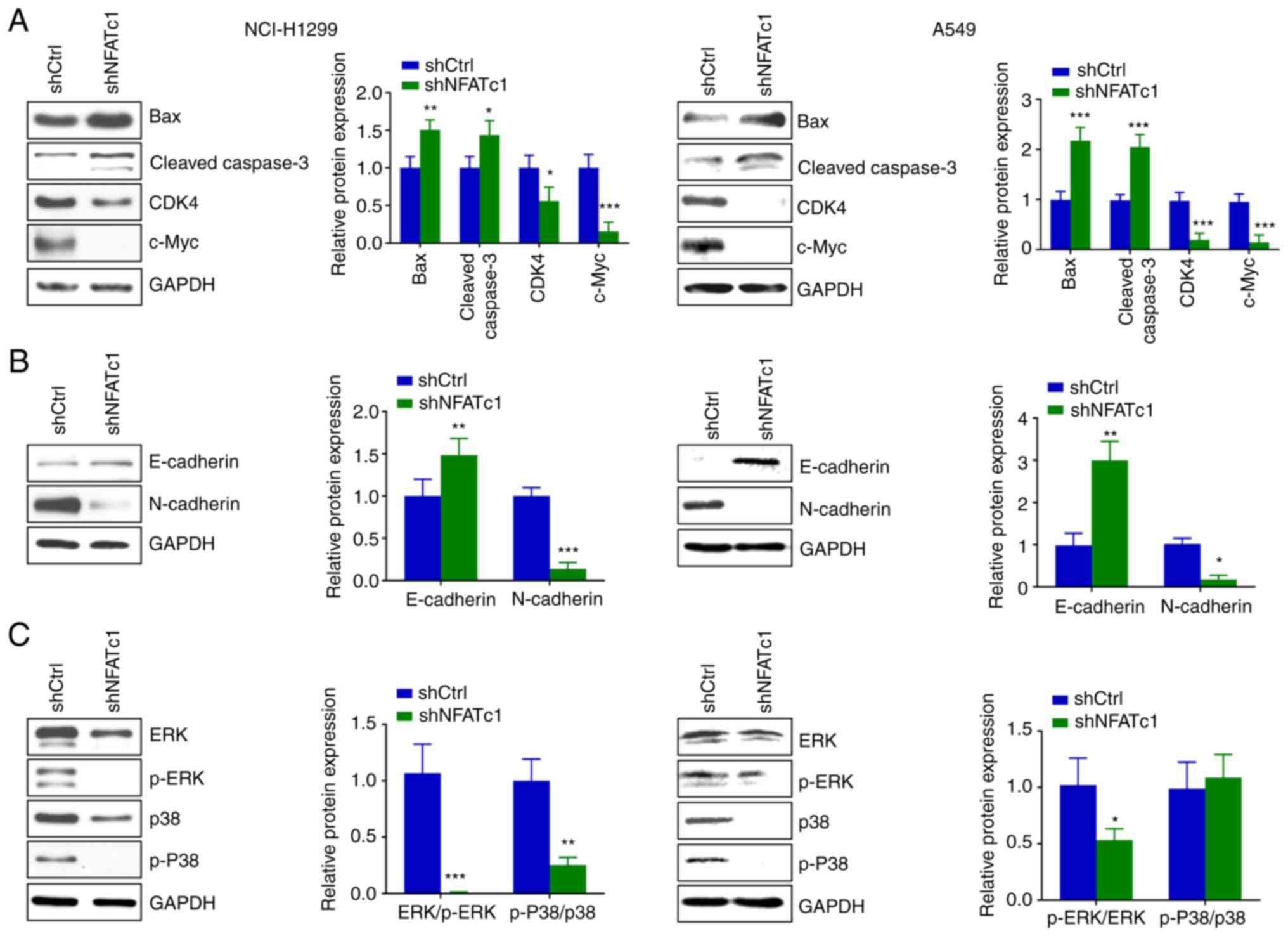|
1
|
Miller KD, Nogueira L, Devasia T, Mariotto
AB, Yabroff KR, Jemal A, Kramer J and Siegel RL: Cancer treatment
and survivorship statistics, 2022. CA Cancer J Clin. 72:409–436.
2022.PubMed/NCBI View Article : Google Scholar
|
|
2
|
Hage R, de la Rivière AB, Seldenrijk CA
and van den Bosch JM: Update in pulmonary carcinoid tumors: A
review article. Ann Surg Oncol. 10:697–704. 2003.PubMed/NCBI View Article : Google Scholar
|
|
3
|
Viale PH: The American cancer society's
facts & figures: 2020 edition. J Adv Pract Oncol. 11:135–136.
2020.PubMed/NCBI View Article : Google Scholar
|
|
4
|
Collins LG, Haines C, Perkel R and Enck
RE: Lung cancer: Diagnosis and management. Am Fam Physician.
75:56–63. 2007.PubMed/NCBI
|
|
5
|
Miller KD, Nogueira L, Mariotto AB,
Rowland JH, Yabroff KR, Alfano CM, Jemal A, Kramer JL and Siegel
RL: Cancer treatment and survivorship statistics, 2019. CA Cancer J
Clin. 69:363–385. 2019.PubMed/NCBI View Article : Google Scholar
|
|
6
|
Herbst RS, Morgensztern D and Boshoff C:
The biology and management of non-small cell lung cancer. Nature.
553:446–454. 2018.PubMed/NCBI View Article : Google Scholar
|
|
7
|
Zhao Q, Wang X, Liu Y, He A and Jia R:
NFATc1: Functions in osteoclasts. Int J Biochem Cell Biol.
42:576–579. 2010.PubMed/NCBI View Article : Google Scholar
|
|
8
|
Qin JJ, Nag S, Wang W, Zhou J, Zhang WD,
Wang H and Zhang R: NFAT as cancer target: Mission possible?
Biochim Biophys Acta. 1846:297–311. 2014.PubMed/NCBI View Article : Google Scholar
|
|
9
|
Liang Q, Wang Y, Lu Y, Zhu Q, Xie W, Tang
N, Huang L, An T, Zhang D, Yan A, et al: RANK promotes colorectal
cancer migration and invasion by activating the
Ca2+-calcineurin/NFATC1-ACP5 axis. Cell Death Dis.
12(336)2021.PubMed/NCBI View Article : Google Scholar
|
|
10
|
Jiang W, Rixiati Y, Huang H, Shi Y, Huang
C and Jiao B: Asperolide A prevents bone metastatic breast cancer
via the PI3K/AKT/mTOR/c-Fos/NFATc1 signaling pathway. Cancer Med.
9:8173–8185. 2020.PubMed/NCBI View Article : Google Scholar
|
|
11
|
Song J, Zou D, Zhao X, Chen Y, Lv F, Wang
S, Sui D, Han Q, Yang C, Wang X, et al: Bufalin inhibits human
diffuse large B-cell lymphoma tumorigenesis by inducing cell death
through the Ca2+/NFATC1/cMYC pathway. Carcinogenesis. 42:303–314.
2021.PubMed/NCBI View Article : Google Scholar
|
|
12
|
Klein-Hessling S, Muhammad K, Klein M,
Pusch T, Rudolf R, Flöter J, Qureischi M, Beilhack A, Vaeth M,
Kummerow C, et al: NFATc1 controls the cytotoxicity of
CD8+ T cells. Nat Commun. 8(511)2017.PubMed/NCBI View Article : Google Scholar
|
|
13
|
Jauliac S, López-Rodriguez C, Shaw LM,
Brown LF, Rao A and Toker A: The role of NFAT transcription factors
in integrin-mediated carcinoma invasion. Nat Cell Biol. 4:540–544.
2002.PubMed/NCBI View
Article : Google Scholar
|
|
14
|
Li L, Duan Z, Yu J and Dang HX: NFATc1
regulates cell proliferation, migration, and invasion of ovarian
cancer SKOV3 cells in vitro and in vivo. Oncol Rep. 36:918–928.
2016.PubMed/NCBI View Article : Google Scholar
|
|
15
|
Baumgart S, Chen NM, Siveke JT, König A,
Zhang JS, Singh SK, Wolf E, Bartkuhn M, Esposito I, Heßmann E, et
al: Inflammation-induced NFATc1-STAT3 transcription complex
promotes pancreatic cancer initiation by KrasG12D. Cancer Discov.
4:688–701. 2014.PubMed/NCBI View Article : Google Scholar
|
|
16
|
Xu W, Gu J, Ren Q, Shi Y, Xia Q and Wang
J, Wang S, Wang Y and Wang J: NFATC1 promotes cell growth and
tumorigenesis in ovarian cancer up-regulating c-Myc through
ERK1/2/p38 MAPK signal pathway. Tumour Biol. 37:4493–4500.
2016.PubMed/NCBI View Article : Google Scholar
|
|
17
|
Livak KJ and Schmittgen TD: Analysis of
relative gene expression data using real-time quantitative PCR and
the 2(-Delta Delta C(T)) method. Methods. 25:402–408.
2001.PubMed/NCBI View Article : Google Scholar
|
|
18
|
Peng SL, Gerth AJ, Ranger AM and Glimcher
LH: NFATc1 and NFATc2 together control both T and B cell activation
and differentiation. Immunity. 14:13–20. 2001.PubMed/NCBI View Article : Google Scholar
|
|
19
|
Kawahara T, Kashiwagi E, Ide H, Li Y,
Zheng Y, Ishiguro H and Miyamoto H: The role of NFATc1 in prostate
cancer progression: Cyclosporine A and tacrolimus inhibit cell
proliferation, migration, and invasion. Prostate. 75:573–584.
2015.PubMed/NCBI View Article : Google Scholar
|
|
20
|
Im JY, Lee KW, Won KJ, Kim BK, Ban HS,
Yoon SH, Lee YJ, Kim YJ, Song KB and Won M: NFATc1 regulates the
transcription of DNA damage-induced apoptosis suppressor. Data
Brief. 5:975–980. 2015.PubMed/NCBI View Article : Google Scholar
|
|
21
|
Heim L, Friedrich J, Engelhardt M, Trufa
DI, Geppert CI, Rieker RJ, Sirbu H and Finotto S: NFATc1 promotes
antitumoral effector functions and memory CD8+ T-cell
differentiation during non-small cell lung cancer development.
Cancer Res. 78:3619–3633. 2018.PubMed/NCBI View Article : Google Scholar
|
|
22
|
Zhou L and Xie X: RNA-binding protein
CELF2 inhibits breast cancer cell invasion and angiogenesis by
downregulating NFATc1. Exp Ther Med. 22(898)2021.PubMed/NCBI View Article : Google Scholar
|
|
23
|
Buchholz M, Schatz A, Wagner M, Michl P,
Linhart T, Adler G, Gress TM and Ellenrieder V: Overexpression of
c-myc in pancreatic cancer caused by ectopic activation of NFATc1
and the Ca2+/calcineurin signaling pathway. EMBO J. 25:3714–3724.
2006.PubMed/NCBI View Article : Google Scholar
|
|
24
|
Oikawa T, Nakamura A, Onishi N, Yamada T,
Matsuo K and Saya H: Acquired expression of NFATc1 downregulates
E-cadherin and promotes cancer cell invasion. Cancer Res.
73:5100–5109. 2013.PubMed/NCBI View Article : Google Scholar
|
|
25
|
Kawahara T, Kashiwagi E, Li Y, Zheng Y,
Miyamoto Y, Netto GJ, Ishiguro H and Miyamoto H: Cyclosporine A and
tacrolimus inhibit urothelial tumorigenesis. Mol Carcinog.
55:161–169. 2016.PubMed/NCBI View
Article : Google Scholar
|
|
26
|
Kawahara T, Kashiwagi E, Ide H, Li Y,
Zheng Y, Miyamoto Y, Netto GJ, Ishiguro H and Miyamoto H:
Cyclosporine A and tacrolimus inhibit bladder cancer growth through
down-regulation of NFATc1. Oncotarget. 6:1582–1593. 2015.PubMed/NCBI View Article : Google Scholar
|
|
27
|
Xu S, Shu P, Zou S, Shen X, Qu Y, Zhang Y,
Sun K and Zhang J: NFATc1 is a tumor suppressor in hepatocellular
carcinoma and induces tumor cell apoptosis by activating the
FasL-mediated extrinsic signaling pathway. Cancer Med. 7:4701–4717.
2018.PubMed/NCBI View Article : Google Scholar
|
|
28
|
Kawahara T, Inoue S, Fujita K, Mizushima
T, Ide H, Yamaguchi S, Fushimi H, Nonomura N and Miyamoto H: NFATc1
expression as a prognosticator in urothelial carcinoma of the upper
urinary tract. Transl Oncol. 10:318–323. 2017.PubMed/NCBI View Article : Google Scholar
|
|
29
|
Singh SK, Chen NM, Hessmann E, Siveke J,
Lahmann M, Singh G, Voelker N, Vogt S, Esposito I, Schmidt A, et
al: Antithetical NFATc1-Sox2 and p53-miR200 signaling networks
govern pancreatic cancer cell plasticity. EMBO J. 34:517–530.
2015.PubMed/NCBI View Article : Google Scholar
|
|
30
|
Saitoh M: Involvement of partial EMT in
cancer progression. J Biochem. 164:257–264. 2018.PubMed/NCBI View Article : Google Scholar
|
|
31
|
Kim EK and Choi EJ: Pathological roles of
MAPK signaling pathways in human diseases. Biochim Biophys Acta.
1802:396–405. 2010.PubMed/NCBI View Article : Google Scholar
|
|
32
|
Wang S, Kang X, Cao S, Cheng H, Wang D and
Geng J: Calcineurin/NFATc1 pathway contributes to cell
proliferation in hepatocellular carcinoma. Dig Dis Sci.
57:3184–3188. 2012.PubMed/NCBI View Article : Google Scholar
|
|
33
|
Iñiguez MA, Martinez-Martinez S, Punzón C,
Redondo JM and Fresno M: An essential role of the nuclear factor of
activated T cells in the regulation of the expression of the
cyclooxygenase-2 gene in human T lymphocytes. J Biol Chem.
275:23627–23635. 2000.PubMed/NCBI View Article : Google Scholar
|
|
34
|
Qiu J, Shi Z and Jiang J: Cyclooxygenase-2
in glioblastoma multiforme. Drug Discov Today. 22:148–156.
2017.PubMed/NCBI View Article : Google Scholar
|
|
35
|
Wang L, Wang Z, Li J, Zhang W, Ren F and
Yue W: NFATc1 activation promotes the invasion of U251 human
glioblastoma multiforme cells through COX-2. Int J Mol Med.
35:1333–1340. 2015.PubMed/NCBI View Article : Google Scholar
|
|
36
|
Liu Y, Liang T, Qiu X, Ye X, Li Z, Tian B
and Yan D: Down-regulation of Nfatc1 suppresses proliferation,
migration, invasion, and warburg effect in prostate cancer cells.
Med Sci Monit. 25:1572–1581. 2019.PubMed/NCBI View Article : Google Scholar
|
|
37
|
He W and Lu J: MiR-338 regulates NFATc1
expression and inhibits the proliferation and
epithelial-mesenchymal transition of human non-small-cell lung
cancer cells. Mol Genet Genomic Med. 8(e1091)2020.PubMed/NCBI View Article : Google Scholar
|
|
38
|
Sun Y, Liu WZ, Liu T, Feng X, Yang N and
Zhou HF: Signaling pathway of MAPK/ERK in cell proliferation,
differentiation, migration, senescence and apoptosis. J Recept
Signal Transduct Res. 35:600–604. 2015.PubMed/NCBI View Article : Google Scholar
|
|
39
|
Kim EK and Choi EJ: Compromised MAPK
signaling in human diseases: An update. Arch Toxicol. 89:867–882.
2015.PubMed/NCBI View Article : Google Scholar
|
|
40
|
Lalkovicova M, Horvathova F, Sulla I,
Mihalik J and Danielisova V: Effects of low and high deprenyl dose
on antioxidant enzyme activities in the adult rat brain. Gen
Physiol Biophys. 36:83–90. 2017.PubMed/NCBI View Article : Google Scholar
|
|
41
|
Lin H, Hao Y, Wan X, He J and Tong Y:
Baicalein inhibits cell development, metastasis and EMT and induces
apoptosis by regulating ERK signaling pathway in osteosarcoma. J
Recept Signal Transduct Res. 40:49–57. 2020.PubMed/NCBI View Article : Google Scholar
|
|
42
|
Yang J, Zhang JN, Chen WL, Wang GS, Mao Q,
Li SQ, Xiong WH, Lin YY, Ge JW, Li XX, et al: Effects of AQP5 gene
silencing on proliferation, migration and apoptosis of human glioma
cells through regulating EGFR/ERK/p38 MAPK signaling pathway.
Oncotarget. 8:38444–38455. 2017.PubMed/NCBI View Article : Google Scholar
|



















